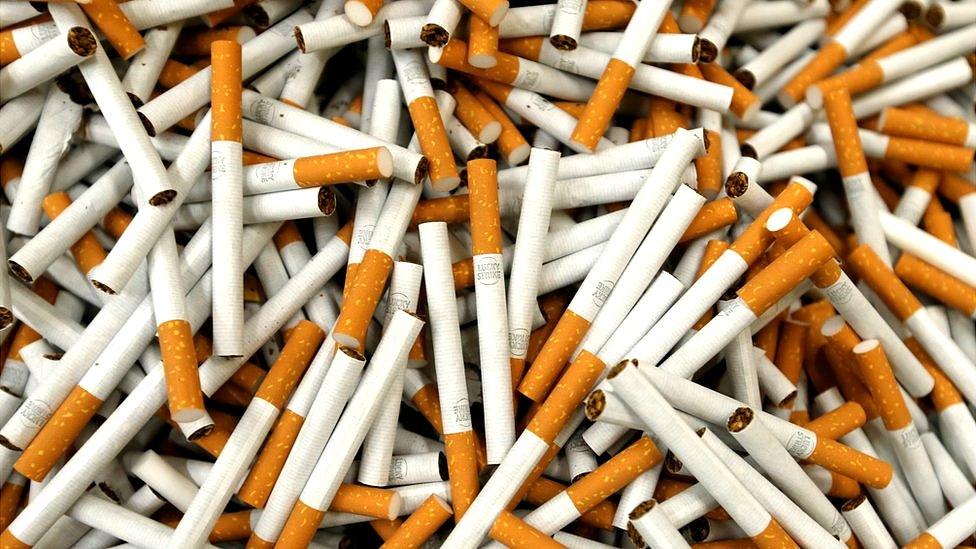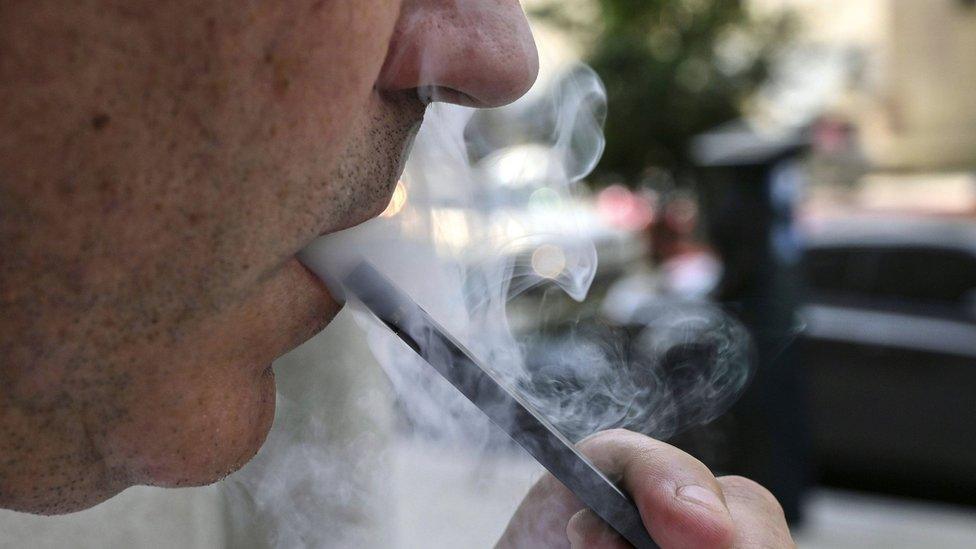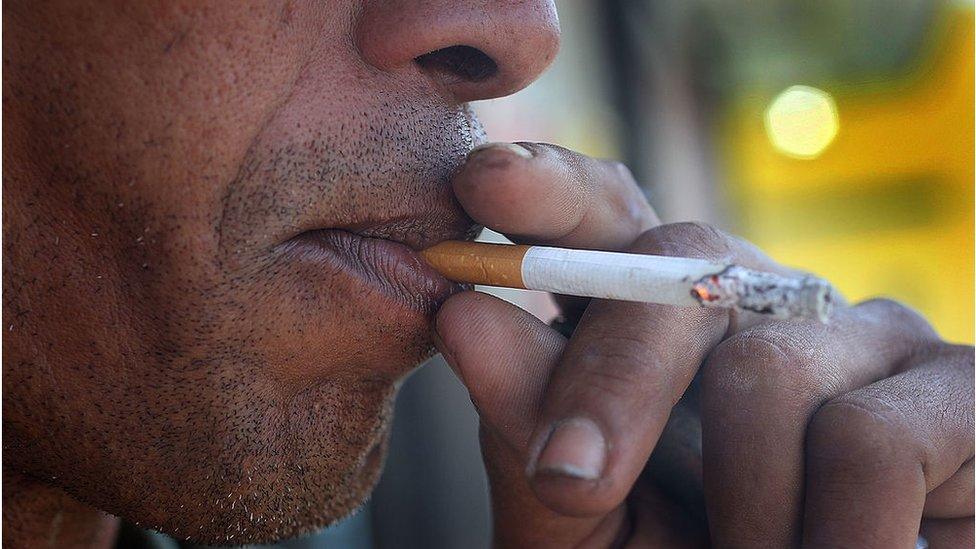Marlboro maker Philip Morris could stop selling cigarettes in UK
- Published

Tobacco giant Philip Morris has said it could stop selling cigarettes in the UK in 10 years' time as it focuses on alternatives, such as heated tobacco.
The move would mean that the firm's flagship Marlboro brand would disappear from British shops.
The firm also indicated it would welcome a government ban on cigarettes.
Health charity Ash said it was hard to take such claims seriously from the firm responsible for selling over a tenth of cigarettes globally.
"Philip Morris can see a world without cigarettes - the sooner it happens, the better it is for everyone," the company said in a statement.
Philip Morris eventually expects the government to ban smoking altogether and said that "strong regulation" was needed to "help solve the problem of cigarette smoking once and for all".
The government has already pledged to end smoking in England by 2030 as part of a range of measures to tackle the causes of preventable ill health.
In comments first reported in the Mail on Sunday, external, Philip Morris International's (PMI) chief executive, Jacek Olczak, told the newspaper: "I want to allow this company to leave smoking behind."
He added: "I think in the UK, 10 years from now maximum, you can completely solve the problem of smoking."
'Fine words not the solution'
However, Deborah Arnott, chief executive of campaigning health charity Action on Smoking and Health (Ash) said: "Philip Morris has claimed that it wants to see the end of smoking for years now, but how can such claims be taken seriously from a company which sells more than one in 10 cigarettes smoked worldwide?,"
She stressed that ending smoking by 2030 must be a priority for the government.
"Smoking is likely to have killed more people than Covid-19 last year in the UK," she added.
"Fine words from Philip Morris are not the solution - funding is needed for government-backed behaviour change campaigns to discourage smoking, and support to help smokers quit."
Michelle Mitchell, chief executive of Cancer Research UK, also called for more efforts to persuade people not to smoke, but said the tobacco industry should be made to contribute to the cost.
She added: "We've heard these empty promises from the tobacco industry before and we're concerned this move is part of an attempt by Big Tobacco to position itself as part of the solution to a smoke-free UK, all the while continuing to promote and sell lethal cigarettes here and globally.
"We know from our work supporting low and middle-income countries in the fight against tobacco industry interference, that Philip Morris's actions globally don't match up with their smoke-free world rhetoric."

Philip Morris has made similar claims previously.
In 2016, Mr Olczak's predecessor as chief executive, André Calantzopoulos, told the BBC that the firm could stop making conventional cigarettes.
And in 2018, in another BBC interview, Mr Calantzopoulos said Philip Morris wanted to phase out cigarettes as soon as possible.
Following Mr Olczak's latest remarks, Dr Moira Gilchrist, the firm's vice-president of strategic and scientific communications, told the BBC: "Quitting is the best option, but for those who don't, science and technology has allowed companies like ours to create better alternatives to continued smoking.
She added that encouraging people to switch to alternatives, together with strong regulation, would help solve the problem of cigarette smoking "once and for all".
"With the right measures in place, PMI can stop selling cigarettes in the UK in 10 years' time."
Smokers' lobby group Forest reacted by saying that banning cigarettes was "a fool's errand" that would not stop people smoking.
"It will simply drive the product into the hands of criminal gangs who will happily sell illicit and counterfeit cigarettes to anyone who wants them, including children," said the group's director, Simon Clark.

Smoke free by 2030?

Despite efforts to reduce smoking, Europe still accounted for more than one third of Philip Morris' sales of combustible products, external in 2020. The company was responsible for more than a quarter of all cigarettes sold worldwide.
Rates of smoking in Britain have halved over the past 35 years and the government set an "extremely challenging" target in 2019 of England being smoke free by 2030. The target is 2034 in Scotland, while Wales and Northern Ireland have not set dates.
A House of Lords report, external says that being smoke free actually means reducing the proportion of people smoking to 5% - it's currently about 15%.
It also said that smoking rates were considerably higher among people on lower incomes, those in economically deprived areas, those living with mental health conditions and people without qualifications
Charities such as Cancer Research UK and Action on Smoking and Health have said that the government's target is unrealistic without more action to target these groups. They warn that without this action, affluent areas will be smoke-free 10 years before poorer ones.
Other suggested steps include requiring retailers to have licences to sell tobacco and ensuring everyone who wants it has access to support to quit smoking.

- Published28 June 2021

- Published29 April 2021

- Published30 November 2016
